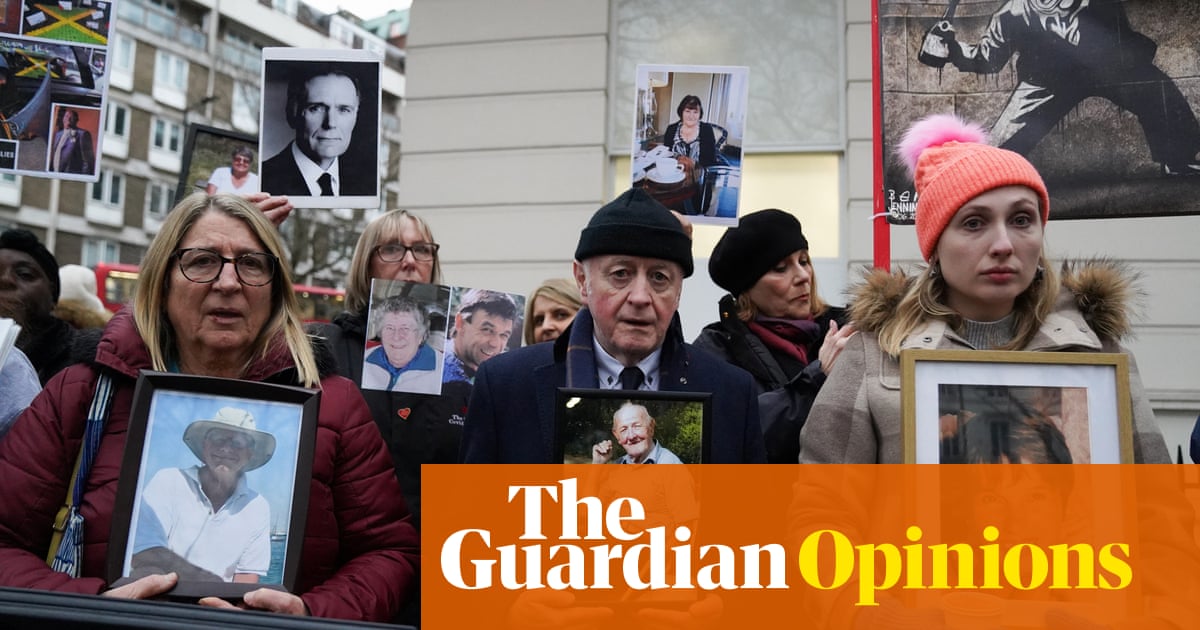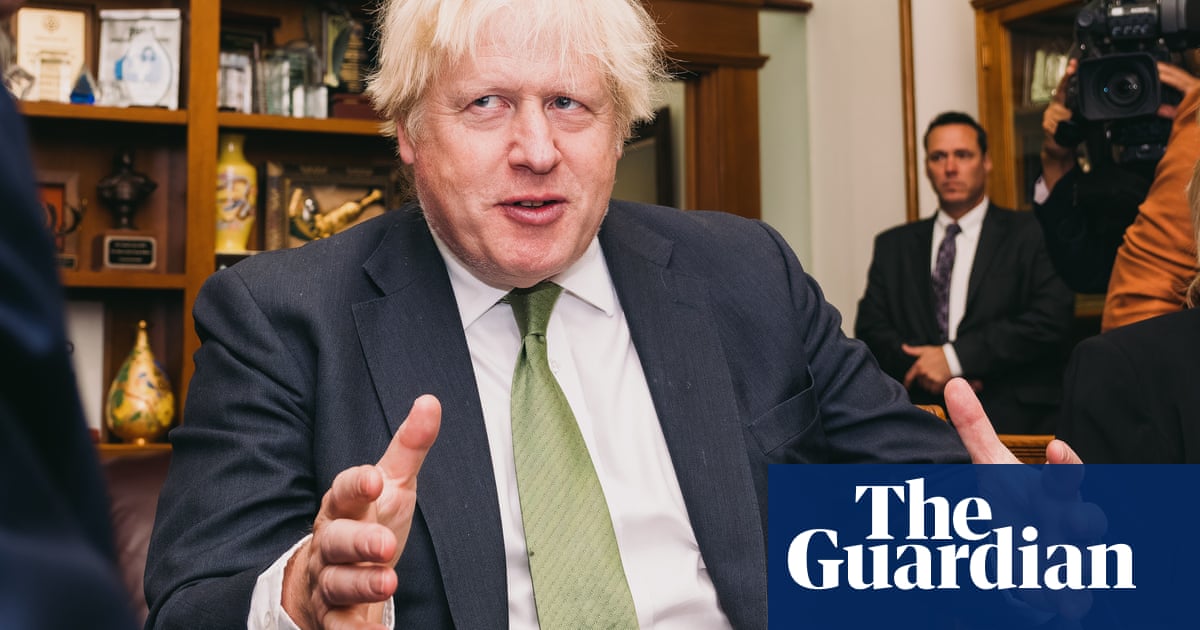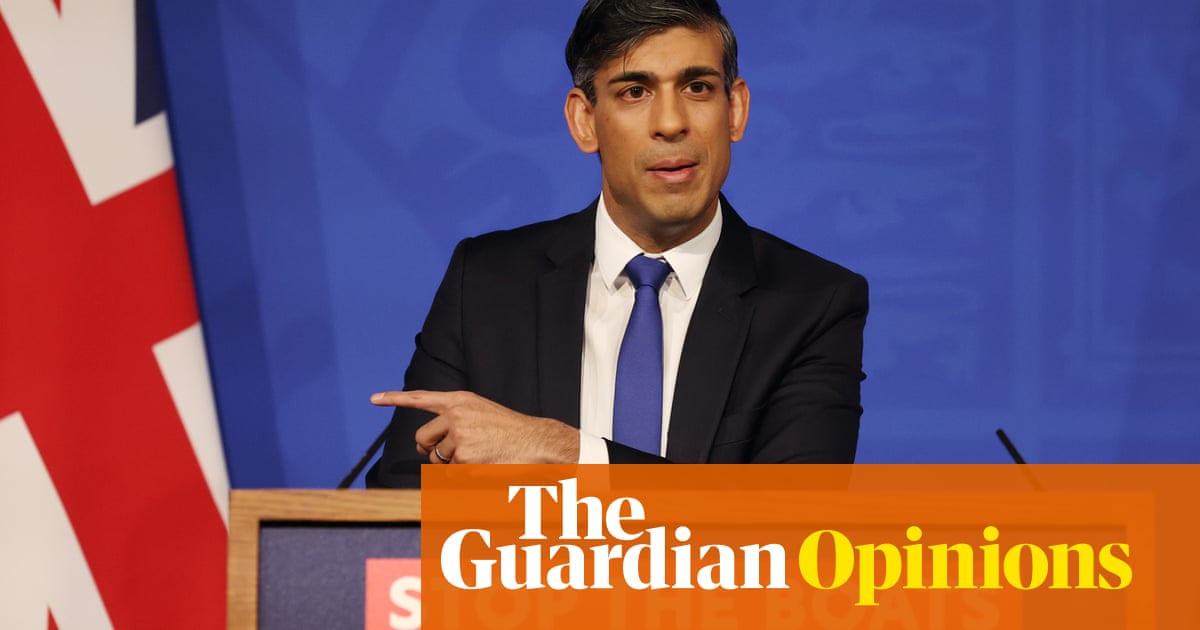
There’s probably never a good time for the chancellor of the exchequer to visit California, but doing so when whole business sectors are on the verge of collapse was a particularly bad look. Yesterday Rishi Sunak announced a bailout package worth around £1bn for businesses losing trade because of Omicron, but Labour has understandably accused the chancellor of being missing in action at the crucial moments. The charge sheet, however, is actually much more serious than that. The chancellor might have been invisible over recent weeks, but his fingerprints are all over the government’s current policy problems.
Why has the government been so reluctant to issue official guidance that would limit public socialising, as Chris Whitty, the chief medical officer for England, has recommended? Because to do so would effectively mean that the government was forcing the closure of the hospitality sector; and in turn that would require the Treasury to reinstitute the furlough scheme, the most economically sensible response to the current crisis but a short-term hit to the public finances that Sunak is desperate to avoid.
Why did the government’s railway plans for the north – the centrepiece of Johnson’s ‘levelling up’ strategy – receive such a raspberry from businesses and local authorities there? Because Sunak had cut the investment funding available, forcing the abandonment of part of HS2 and the critical trans-Pennine route.
Why was the government’s net zero strategy delayed for six months, then when finally published criticised by both environmental and business groups? Because the chancellor had refused to provide the levels of public investment needed to achieve the strategy’s emissions-cutting objectives. Independent estimates put the sums required at four times the £30bn he allowed.
And why was the government’s social care plan lambasted by almost everyone, from the independent King’s Fund to the Tory chair of the health and social care select committee? Yes, you guessed it. Because Sunak had seriously underfunded it. His parsimony even extended to recalculating the household cap on care costs in a way that will leave many poorer households at risk of being forced to sell their homes, which was precisely what Boris Johnson had promised would not happen.
Each of these underfunding decisions arises from the same source: the chancellor’s new “fiscal rules”. One of these is relatively uncontroversial: that in normal times government should only borrow for investment, with day to day spending covered by taxes. But the other two have powerful effects. Sunak has insisted that the total level of government debt should be on a downward path within three years. And he has placed a cap on annual public investment, at 3% of GDP.
By adopting these rules, Sunak is placing a tight limit on public spending. This was disguised in last month’s budget, because the spurt of economic growth in the autumn had given him more revenues than anticipated, allowing him to give more money to almost every government department. But as each of the subsequent policy announcements has shown, his largesse is much less than required by the prime minister’s policy and political objectives.
Gordon Brown introduced the idea of fiscal rules in 1997 to reassure the City that he would be prudent with the public finances. If the Treasury must follow preordained rules, the chancellor cannot manipulate the economy for political benefit, such as stoking a consumer boom before an election. But rules are only useful if they remain fixed. In practice, every chancellor from Brown himself onwards has adjusted the rules to allow them to adopt the fiscal stance they prefer. Sunak’s are the fifth set announced in the last six years.
So no one should let Sunak claim that the fiscal rules mean his hands are tied, that he simply cannot spend more. The chancellor has pulled the rope tight around his wrists himself.
But do the present rules at least make economic sense, so even though self-imposed they constitute a rational fiscal constraint? No. Sunak’s rules are peculiarly illiterate from an economic point of view.
There is no economic justification for saying that 2024 must be the moment when public debt starts to fall. It is true that, at 95% of national income, the UK’s debt is much higher than it used to be. But what makes debt “unsustainable” is not its absolute level, but how much it costs the government in interest payments. And these are currently at their second lowest level – because interest rates have been so low for so long – since the 1950s.
This makes Sunak’s 3% cap on public investment quite extraordinary. The UK economy is crying out for investment: in building homes, insulating homes, renewable energy, railways, broadband, childcare and social care, schools, nature conservation, business innovation and productivity improvement, to name just a few key fields. In the past much of this would have been done by the private sector. But in today’s “financialised” economy, where banks put more money into land and property than into productive businesses, and companies prefer paying dividends to investing for the long term, there is a crucial role for the public sector to invest instead. Given that it can now borrow at highly negative real interest rates (that is, once inflation is taken into account), it would indeed be absurd not to. In these circumstances, putting an arbitrary cap on public investment is exactly the opposite of what is required.
So why is Sunak doing this? He gave the game away earlier this month, with a careful leak to the Times that he intends to cut income tax before the next election (due in 2024). He will only have room to do this if public spending – however valuable – has been tightly reined in. You don’t need to be a political genius to see that Sunak is positioning himself for the next Conservative party leadership election, as the tax-cutting, small-state heir to Margaret Thatcher so fervently longed for by the party’s MPs and members.
Everyone in Westminster can see this. On Tuesday, the astute Westminster watchers at website Politico acknowledged his ambitions with the label “King Rishi”. But what makes it so astonishing is that the collateral damage has gone largely unremarked upon. Sunak is effectively undermining every single one of Johnson’s policy priorities. It is surely as brazen an act of political treachery as modern times have seen.
Michael Jacobs is professor of political economy at the University of Sheffield, and managing editor of NewEconomyBrief.net












